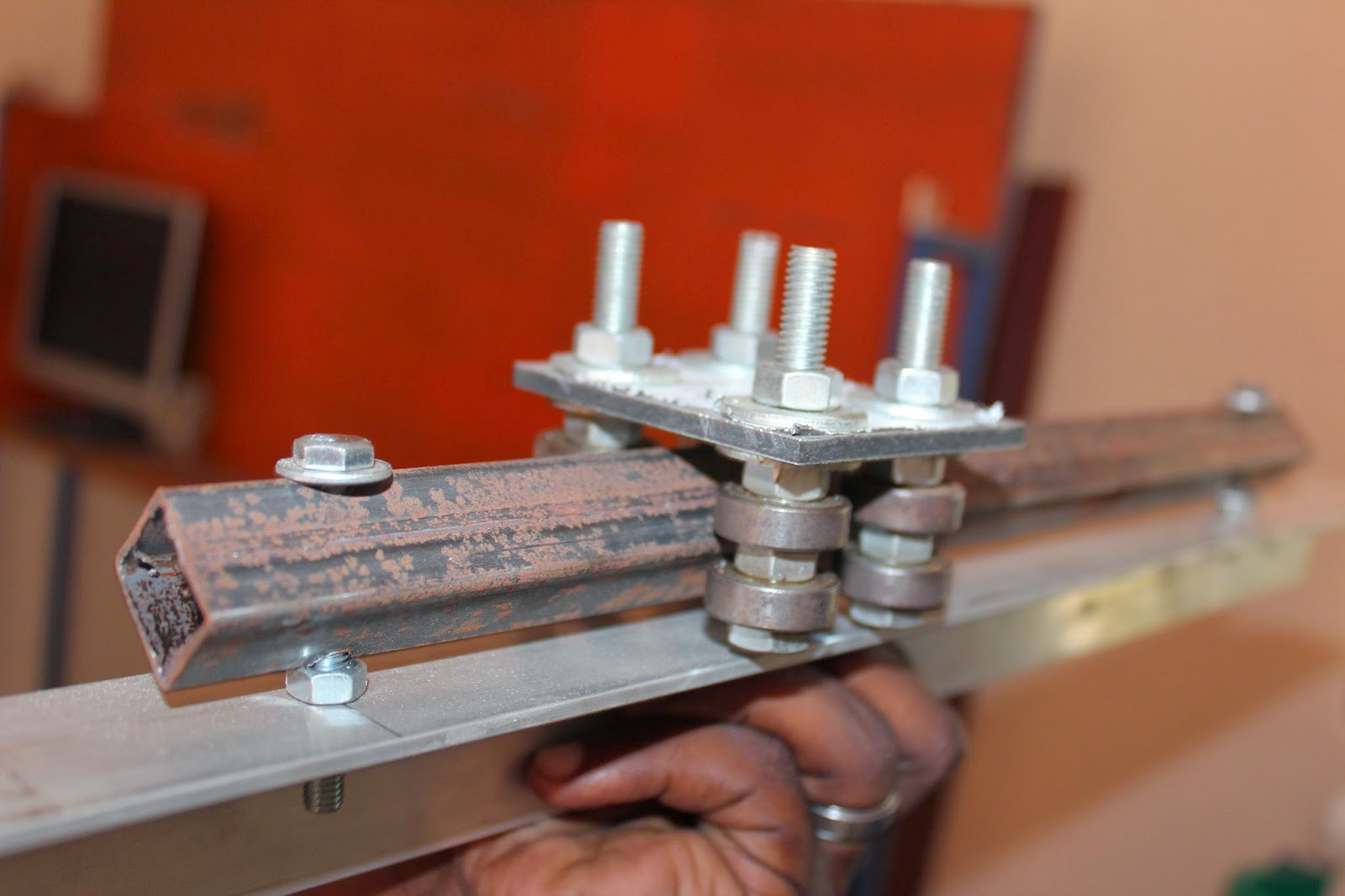
Across the garage lies an eye popping fish farm project powered by a wind-turbine made from recycled and locally available materials, the wind turbine technology is stereotypically perceived to be an expensive technology in Africa yet it is the most energy efficient technology made and used by the STIC fellows to pump tonnes of water processed with Oxygen into the fish farm to give hundreds of Catfish living in the farm life. Having faced the hostile breeding cycle of the catfish, they decided to improvise a way of making the cat fish breed hence they devised a ‘fish hatchery’ for artificial breeding, hatching and rearing of the catfish through their early life stage. According to the STIC fellows, the fish project is the most commercially focused venture injecting more resources into their projects.
Next to the fish breeding area stands a blue and yellow coin-operated water vending machine designed to ease community water payment, provide safe and reliable water services. The simple to operate machine only requires one to understand how it works and make use of it responsibly. By simply dropping a legal Tanzanian coin into the machine, the system automatically detects the currency and deposits water worth the input, incase balance is required the machine automatically knows when and how much to dispense. A similar portable system fitted with approved carbon filters is yet to be designed which might ease access to high quality clean and safe vended drinking water in schools and related institutions cheaply as compared to buying processed manufactured bottled drinking water.
As we proceed to the next block of the Kitunda workstation, we already thrilled by the height of innovation and creativity that lies within Tanzanian great minds. After engaging with Stanley Mwalembe, STIC founder on various Buni Hub projects and initiatives we were certain that a collaborative working agreement between STIC and Buni Hub would be a healthy union towards scaling out our shared visions.
With the future of the potential of Tanzanian technology in mind, a common effort of local and international tech bigwigs notably; STIC, BUNI, Commission for Science and Technology (COSTECH) and Tech for Trade have teamed up to scale out e-waste 3D technology in Tanzania. In this agreement, Buni Hub will be the oversight authority overseeing, monitoring and evaluating the impact of this project whereas COSTECH is willing to empower tech innovators and have shown interest in supporting inventions and innovative projects in Tanzania with a vision that this projects will help groom and inspire more innovators and creatives from local institutions and communities. The aim of this initiative is to reach out to SME’s in creating awareness and impart them with required skills and knowledge of the e-waste 3D printers in their day-to-day operations.
STIC fellows commitment to promoting local innovation ecosystem in Tanzania is a factor we put in consideration before reaching out for them in possible partnership talks; STIC fellows constituted the high number of people who turned out for the first 3D Printer workstation in Tanzania facilitated by Matthew Rodge courtesy of Tech4Trade while introducing 3D printing technology in Tanzania, the workstation was a success that inspired STIC fellows to further revolutionize local e-waste 3D printers functionality by introducing Z-axis to the existing X and Y axis currently operating the former e-waste 3D printers built at Buni Fabrication Lab; this inclusion is a pleasing re-invention with a greater user efficiency potential.





0 comments:
Post a Comment